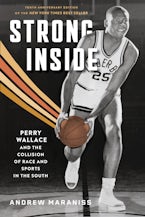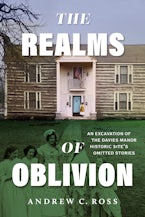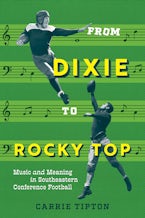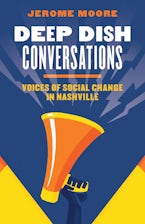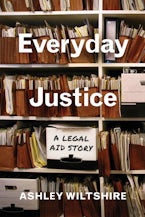- Home
- Hot Spot
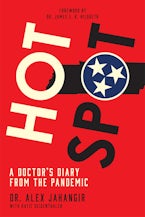
When Nashville identified its first case of coronavirus in March 2020, the city was between Public Health Department directors and as unprepared as the rest of the world for what was to come. Dr. Alex Jahangir, a trauma surgeon acting at that time as chair of the Metro Nashville Board of Health, unexpectedly found himself head of the city's COVID-19 Task Force and responsible for leading it through uncharted waters.
What followed was a year of unprecedented challenge and scrutiny. Jahangir, who immigrated to the US from Iran at age six, grew up in Nashville. He thought he knew the city well. But the pandemic laid bare ethnic, racial, and cultural tensions that daily threatened to derail what should have been a collective effort to keep residents healthy and safe.
Hot Spot is Jahangir's narrative of the first year of COVID, derived from his op notes (the journal-like entries surgeons often keep following operations) and expanded to include his personal reflections and a glimpse into the inner sanctums of city and state governance in crisis.
What followed was a year of unprecedented challenge and scrutiny. Jahangir, who immigrated to the US from Iran at age six, grew up in Nashville. He thought he knew the city well. But the pandemic laid bare ethnic, racial, and cultural tensions that daily threatened to derail what should have been a collective effort to keep residents healthy and safe.
Hot Spot is Jahangir's narrative of the first year of COVID, derived from his op notes (the journal-like entries surgeons often keep following operations) and expanded to include his personal reflections and a glimpse into the inner sanctums of city and state governance in crisis.
Foreword by Dr. James E. K. Hildreth
Introduction
Surge 1: March 8, 2020–May 31, 2020
Surge 2: June 1, 2020–September 30, 2020
Surge 3: October 1, 2020–March 7, 2021
Epilogue: Surge 4
Notes
Introduction
Surge 1: March 8, 2020–May 31, 2020
Surge 2: June 1, 2020–September 30, 2020
Surge 3: October 1, 2020–March 7, 2021
Epilogue: Surge 4
Notes
Dr. Alex Jahangir, an orthopaedic trauma surgeon, is vice-chair of Orthopaedic Surgery and professor of Orthopaedic Surgery, Medicine, and Health Policy at Vanderbilt University Medical Center. Dr. Jahangir was named to the Metro Nashville Board of Health in 2017. He served as head of the Metro Nashville COVID-19 Task Force for the entire two years of the Task Force's existence.
Katie Seigenthaler is a managing partner with FINN Partners and a former journalist with the Chicago Tribune.
"I will only assert that my friend Alex Jahangir's pandemic memoir is a touchstone for anyone who led through or lived through the pandemic. More crucially, his account gives us a template for leadership when there is none to be had."
—from the foreword by Dr. James Hildreth
"In Alex Jahangir's Hot Spot, we are all patients under the care of a doctor who recounts in simple, relatable stories what we went through during the pandemic and how we can get better together."~John Whyte, MD, MPH, Chief Medical Officer, WebMD
—John Whyte, MD, MPH, Chief Medical Officer, WebMD
"Dr. Alex Jahangir, with level-headed, scientific, and clinical assurance, stepped up on day one to lead the people of Middle Tennessee through the most frightening and personally threatening public health crisis of our times. A full-time Vanderbilt orthopaedic trauma surgeon, Dr. Jahangir became Nashville's chief communicator overnight. His chronicles vividly capture the dense, shifting fog of uncertainty—through which he astutely, calmly, and confidently walked a terrified population—and how policy, politics, and evolving science were artfully navigated by a small group of community leaders. He is a science-based physician with a direct yet humble, empathetic voice that held our community together. Hot Spot lays out the backdrop and prescription of how we can be better prepared for the next big natural disaster or health challenge. A must-read for those who will lead."~Senator Bill Frist, MD, former Majority Leader of the US Senate
—Senator Bill Frist, MD, former Majority Leader of the US Senate
"Alex Jahangir's specialty is, in his own words, 'intimate disasters.' These words describe orthopaedic trauma, but they also describe the excruciating myriad of micro-traumas we've all endured during the unfolding of this pandemic. The endless isolation, an intimate disaster. The deathbeds via FaceTime, an intimate disaster. The quiet, wild fear at every short breath, an intimate disaster. But Dr. Jahangir's work, though forged in and from the disaster of COVID-19, is a gift of insight. There is courage, introspection, and a refreshing dose of frank bewilderment. Now, more than ever, we need doctors who see the story behind the symptoms, who want to tell the truth and tell it well, and dynamically. This book does that work. We are lucky to have physicians of such competence and sound spirit in this, and indeed in any, time of crisis."~Caroline Randall Williams, author of Lucy Negro, Redux and Soul Food Love and writer in residence at Vanderbilt University
—Caroline Randall Williams, author of Lucy Negro, Redux and Soul Food Love and writer in residence at Vanderbilt University
"Alex Jahangir's Hot Spot is more than a doctor's diary of the COVID-19 pandemic. It is a profound and timely commentary on the toxic cloud of hate, selfishness, and mistrust that permeates American life at this moment in history, and the warm beams of love, selflessness, and truth that still emerge, even in unlikely places. This book will be an invaluable time capsule for future historians, but it's also an urgent call to persevere through what appear to be impossible challenges."~Andrew Maraniss, New York Times–bestselling author of Strong Inside, Games of Deception, Singled Out, and Inaugural Ballers
—Andrew Maraniss, New York Times–bestselling author of Strong Inside, Games of Deception, Singled Out, and Inaugural Ballers
I am an orthopaedic trauma surgeon. I specialize in intimate disasters defined by blood and broken bodies. Show me somebody whose every bone is shattered and I will know what to do. Show me somebody whose life is draining away, and I will remain calm, reminding myself of a saying in trauma surgery: all bleeding stops. I have spent years training—and training others—not just to fix, but to heal: to help people move past shock and damage and reenter their lives again.
In 2020, I became both doctor and patient. I was shown a city whose every norm was shattered by the worst health crisis of our time. By virtue of fate and circumstance, that city—Nashville, Tennessee, where I had immigrated from Iran as a six-year-old child—looked to me to decide what to do. I didn’t know. I lived in that city with my wife and young children, my parents, grandmother, extended family, colleagues, and friends. Nashville was part of me and I was part of Nashville. I was shattered too.
In this we were all the same. Leaders of nations, leaders of states and cities, leaders of companies and congregations and schools, parents of children, essential workers, rich and poor, young and old, solitary souls living in cavernous houses and generations crammed together in tiny apartments. In the early days of the pandemic, we were all stunned and scared by what we didn’t know.
My hometown asked me to help figure it out. Given my position in March 2020 as the chair of the Metro Nashville Board of Health, the mayor asked me to lead the Metro Coronavirus Task Force, later known as the COVID-19 Task Force. Like everyone working with me, I was initially at a loss. But I was able to join with some of the best minds and hearts I have ever met, and together we did the best we could.
We needed to move mountains, and some days we did. We were able to accomplish things on behalf of Nashvillians that—sometimes mere hours before—had seemed impossible. On these good days, I felt myself part of something larger, more powerful, and more consequential than anything I’d ever experienced. I walked in the clouds with my compatriots, both humbled and proud to be a human being and an American—living in a country with a singular capacity for ingenuity and innovation.
On other days we failed to move anything in the right direction, much less mountains. On these days I cursed my feet of clay and my limits, particularly my naivete and ignorance of the interdependent and complex systems that make our cities work. I also sometimes found myself helpless as competing interests attacked each other and attacked me, or as selfishness and fear overcame our better natures, or worst of all, as politics rather than people’s needs drove decisions.
On the bad days, I was filled with sorrow, frustration—and something more, something unfamiliar. I had known sorrow and frustration. I had known failure. I had struggled to save people’s lives and lost them when their injuries proved too much to overcome. But I had never known anger like the anger I felt when people who had the power to help solve the massive problems of the pandemic refused to do so, preferring to duck and posture and blame and lie, then leave local officials and volunteers like me to deal with the fallout.
It was weird to be Nashville’s hero on the good days and Nashville’s villain on the bad ones. I wondered how a guy like me—a classic striver who grew up trying to make good on my opportunities—wound up becoming either one.
In 2020, I became both doctor and patient. I was shown a city whose every norm was shattered by the worst health crisis of our time. By virtue of fate and circumstance, that city—Nashville, Tennessee, where I had immigrated from Iran as a six-year-old child—looked to me to decide what to do. I didn’t know. I lived in that city with my wife and young children, my parents, grandmother, extended family, colleagues, and friends. Nashville was part of me and I was part of Nashville. I was shattered too.
In this we were all the same. Leaders of nations, leaders of states and cities, leaders of companies and congregations and schools, parents of children, essential workers, rich and poor, young and old, solitary souls living in cavernous houses and generations crammed together in tiny apartments. In the early days of the pandemic, we were all stunned and scared by what we didn’t know.
My hometown asked me to help figure it out. Given my position in March 2020 as the chair of the Metro Nashville Board of Health, the mayor asked me to lead the Metro Coronavirus Task Force, later known as the COVID-19 Task Force. Like everyone working with me, I was initially at a loss. But I was able to join with some of the best minds and hearts I have ever met, and together we did the best we could.
We needed to move mountains, and some days we did. We were able to accomplish things on behalf of Nashvillians that—sometimes mere hours before—had seemed impossible. On these good days, I felt myself part of something larger, more powerful, and more consequential than anything I’d ever experienced. I walked in the clouds with my compatriots, both humbled and proud to be a human being and an American—living in a country with a singular capacity for ingenuity and innovation.
On other days we failed to move anything in the right direction, much less mountains. On these days I cursed my feet of clay and my limits, particularly my naivete and ignorance of the interdependent and complex systems that make our cities work. I also sometimes found myself helpless as competing interests attacked each other and attacked me, or as selfishness and fear overcame our better natures, or worst of all, as politics rather than people’s needs drove decisions.
On the bad days, I was filled with sorrow, frustration—and something more, something unfamiliar. I had known sorrow and frustration. I had known failure. I had struggled to save people’s lives and lost them when their injuries proved too much to overcome. But I had never known anger like the anger I felt when people who had the power to help solve the massive problems of the pandemic refused to do so, preferring to duck and posture and blame and lie, then leave local officials and volunteers like me to deal with the fallout.
It was weird to be Nashville’s hero on the good days and Nashville’s villain on the bad ones. I wondered how a guy like me—a classic striver who grew up trying to make good on my opportunities—wound up becoming either one.


